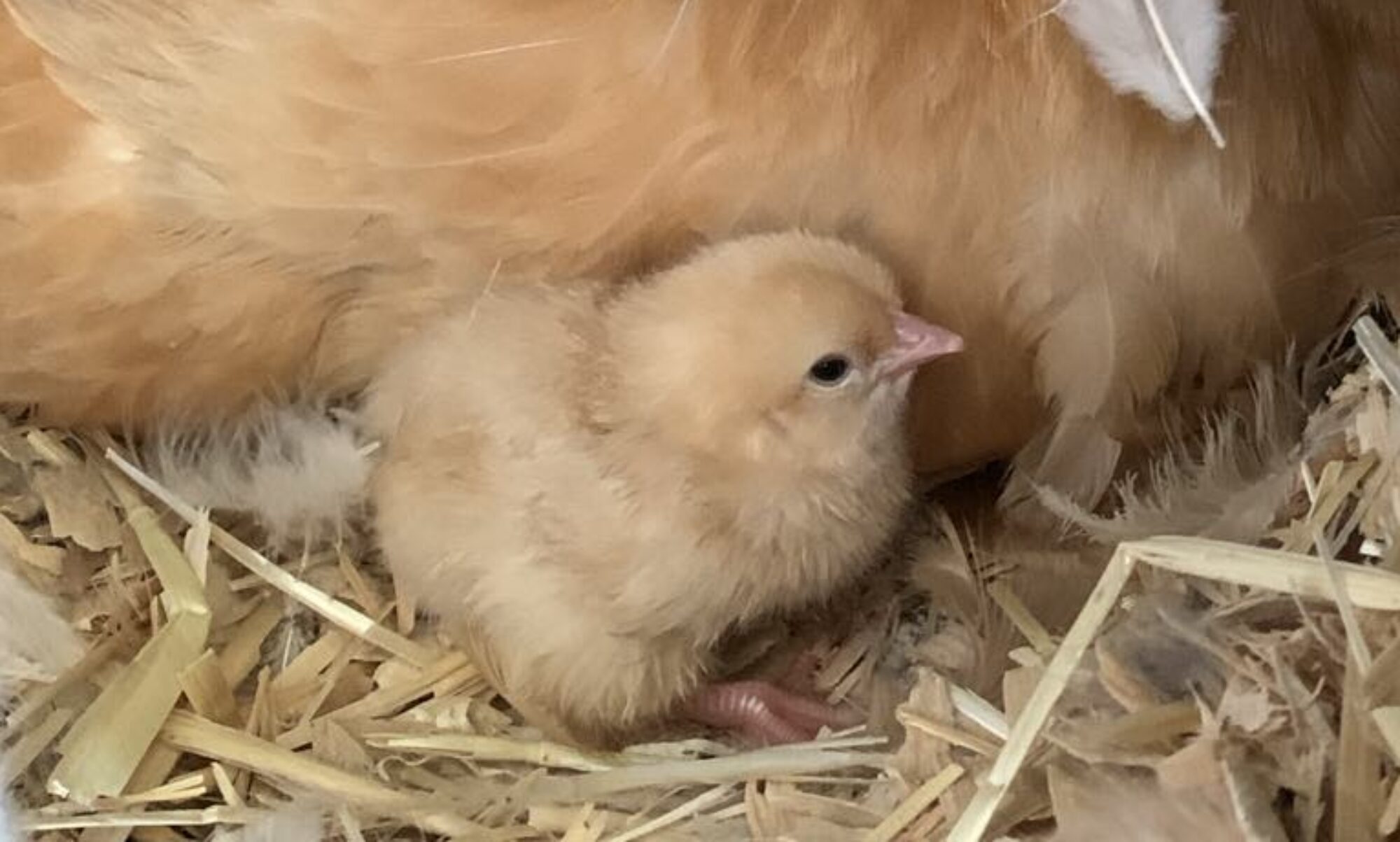Not too long after we started raising chickens, I went to the local feed store for some chicken feed and brought home a white Pekin duckling that I named Howard. Howard was my first experience with raising ducks. Since then the ducks we have added to our flocks have been found, given to us or had physical problems. My husband once brought home a crested duckling from the feed store who had a kinked neck and walked with his head tilted to one side. We called him Crazy Duck! With love, care and time, his neck straightened out and he was a beautiful duck with that fun puff of feathers on his head. My husband also brought home a duckling he found at the side of the freeway. He looked like a Mallard cross and grew up to be a pretty little guy. When we first moved in to our current home, a neighbor asked if my boys could have a duckling. Sure, why not. He borrowed the boys to help him catch one and next thing I knew, I had a mama and 9 ducklings! I currently have a flock of 6 ducks and they are the best!

Some folks seem to think that ducks are difficult to raise and that you have to have a body of water for them to swim in. On the contrary, ducks are very easy to raise, they are animated, and lots of fun to watch! They are a favorite of raccoons as well, so if you live in an area with raccoons, make sure your ducks have a safe place to sleep at night.

Ducks are omnivores and don’t require any special feed. In fact, I feed my ducks the same thing that I feed my chickens. They will eat leaves, grass, herbs, grains, seeds, small fruits, berries, insects, grubs and snails. I have witnessed a group of ducks eat a hole straight through a pumpkin! I always let the ducks out into my garden at the end of gardening season so that they can clean up any unwanted snails and bugs. A varied diet will provide all the nutrients a duck needs for healthy growth and development. Like chickens, they do require grit for the proper digestion of their food. Ducks will generally get this naturally if allowed to forage for some of their food.

Ducks do require water, but you don’t need to have a pond for them to swim in. In addition to clean water for drinking, they do like water to bathe in. During the spring and summer I provide a plastic kids pool, and during the winter months they get a shallow water tub. As long as there is enough water to dunk their heads, they will be content. Like geese, they take a “bath” everyday…sometimes more than one! Bathing is how they maintain healthy feathers, spreading the natural oils that keep the outer feathers weatherproof, and getting rid of dirt. During the warmer months they will hang out in the pasture and play in the sprinklers.
Ducks don’t require any fancy housing. They don’t need roosting bars nor nesting boxes. All they need is some straw bedding on the ground that they can build a nest to lay an egg in, or snuggle down in at bedtime. They do need some protection from predators as they don’t have a lot of defense mechanisms, whether you keep them housed with your chickens or other animals. My ducks are free range and roam and sleep with the goats. They do like nice, shady spots to nap in on a warm summer afternoons.

Ducks are characters. My ducks don’t fly, probably because they are too well fed, and they waddle more than run. They have a way of communicating with one another that is interesting to watch. It’s a combination of quacks and head bobs, but they seem to understand one another. Ducks do well in the cold. During the winter you will often see them fluttering their wings and tucking their feet up under them. These are a couple methods that they use to keep themselves warm. Their inner layer of soft down, covered by a waterproof outer layer of feathers helps as well. And in addition, veins and arteries in their legs and feet run close to each other which allows for a kind of heat exchange. As the warm blood leaves the body, it heats up the cold blood returning to the body. Ingenious design!

There are several different domestic breeds of ducks depending on the purpose you have for keeping them. They can be a good source of meat or eggs. My ducks are used for eggs, entertainment and garden clean-up detail. Their eggs are a little larger than a chicken egg, but can be used in much the same way. I mainly use my duck eggs in baking. If you have been thinking about adding ducks to your flock, you would definitely get a thumb’s up from me!
Do you raise ducks? What has your experience been like?

